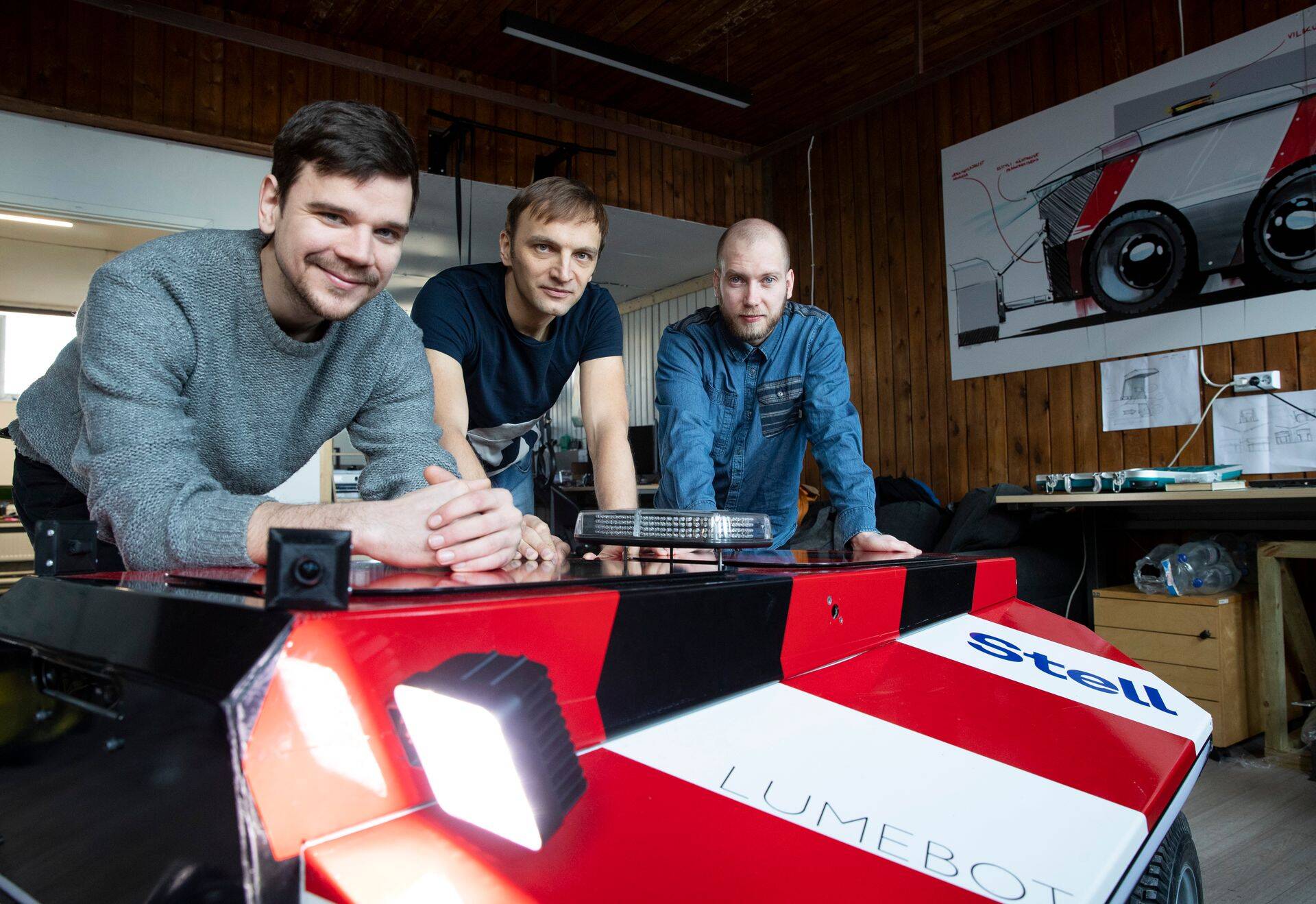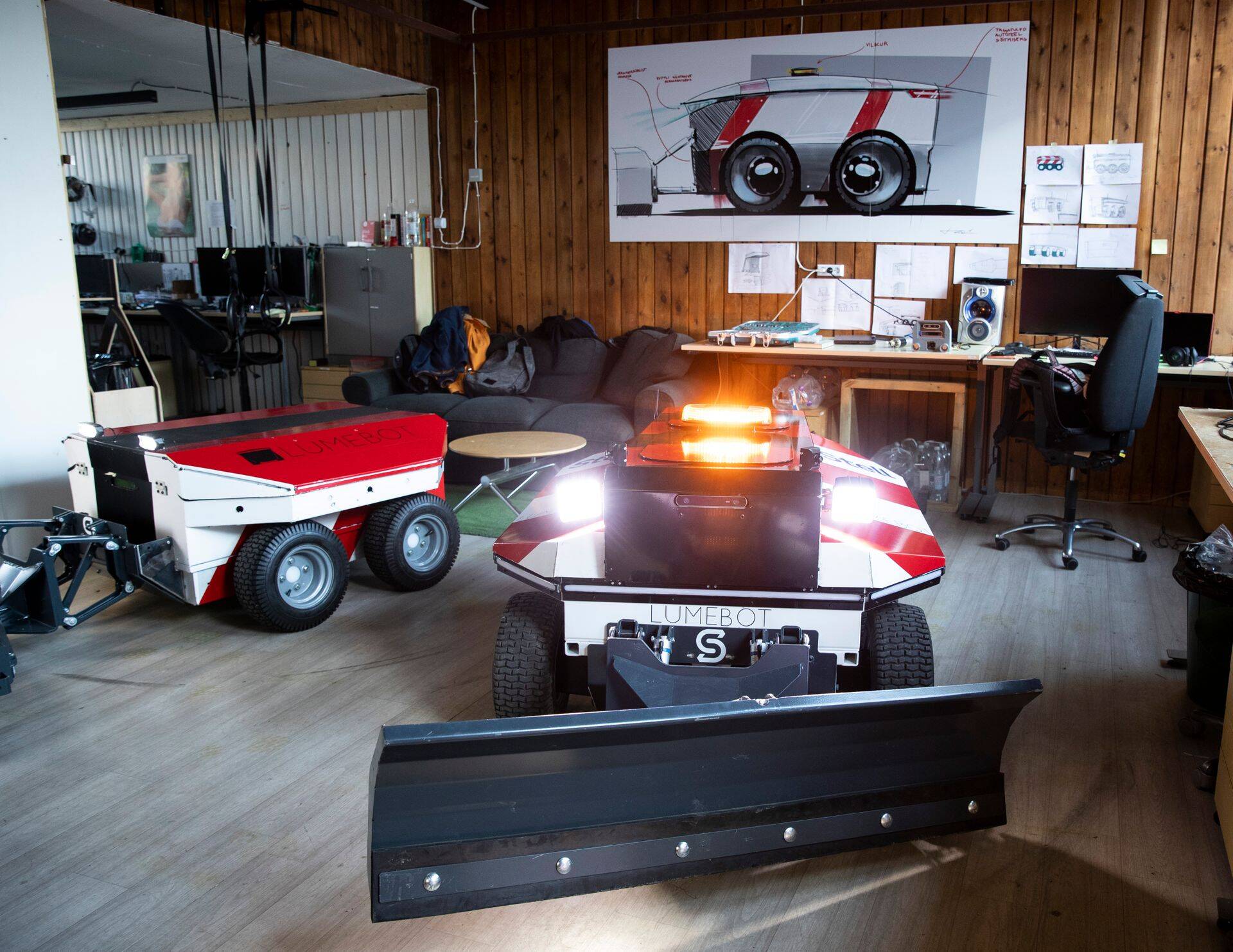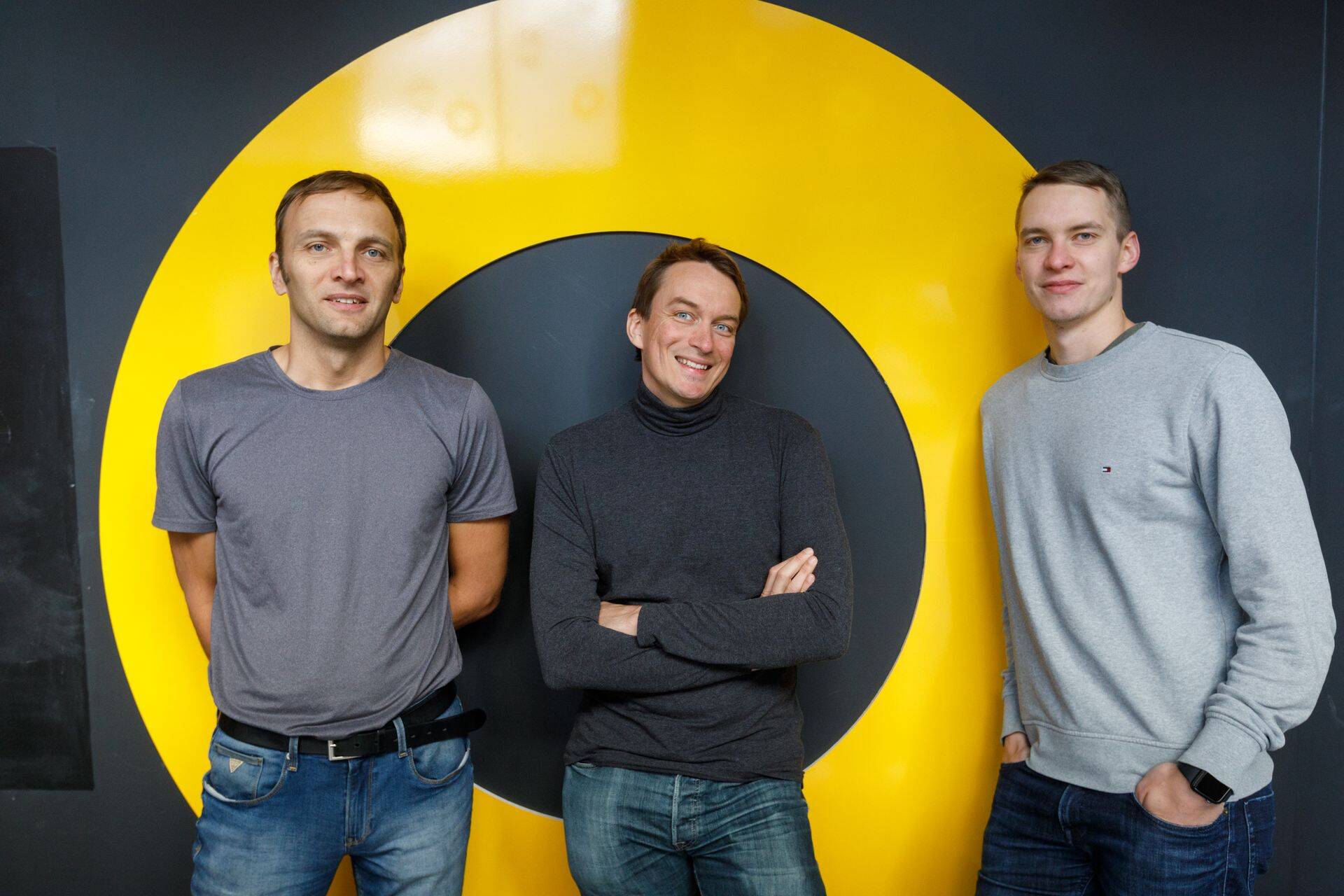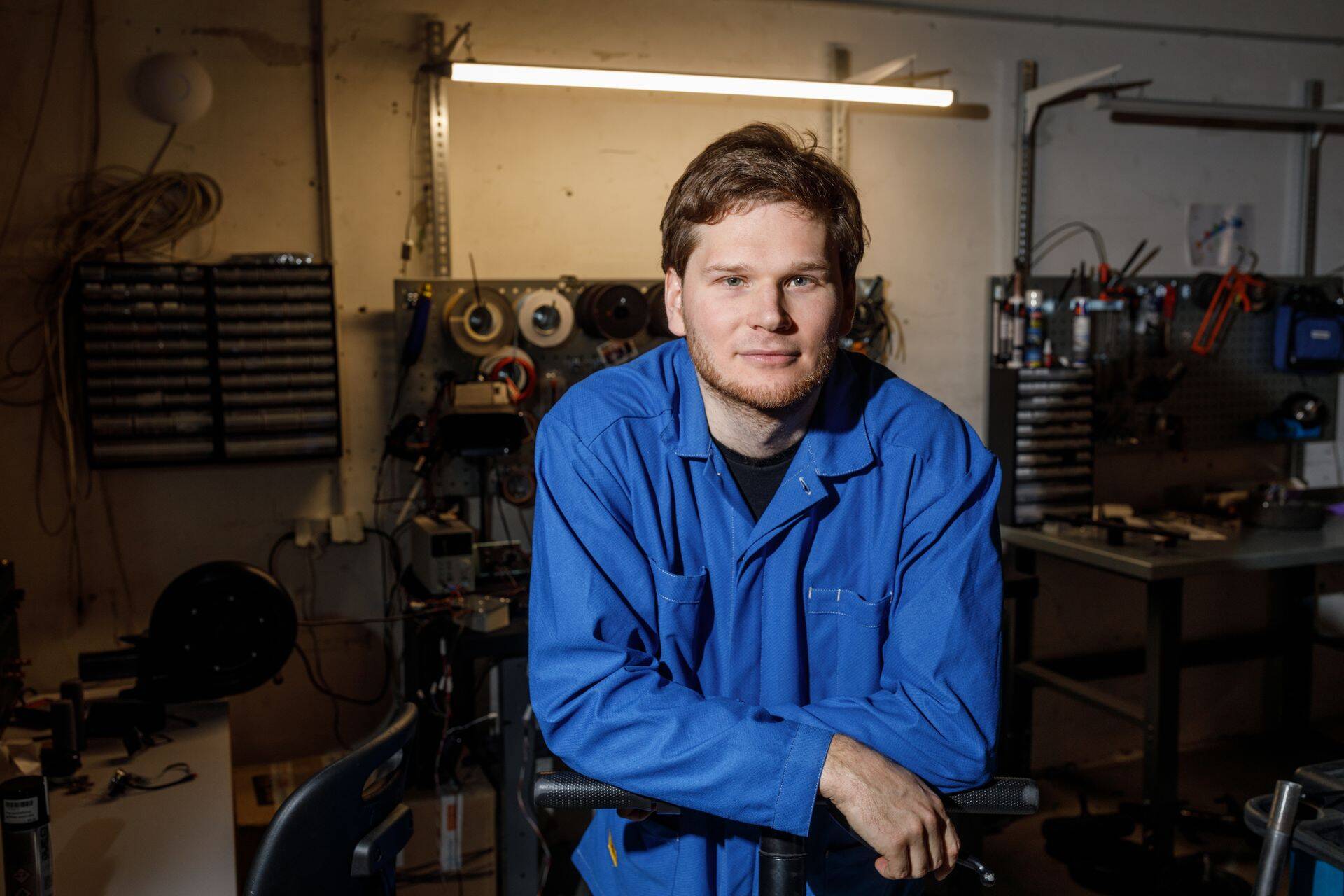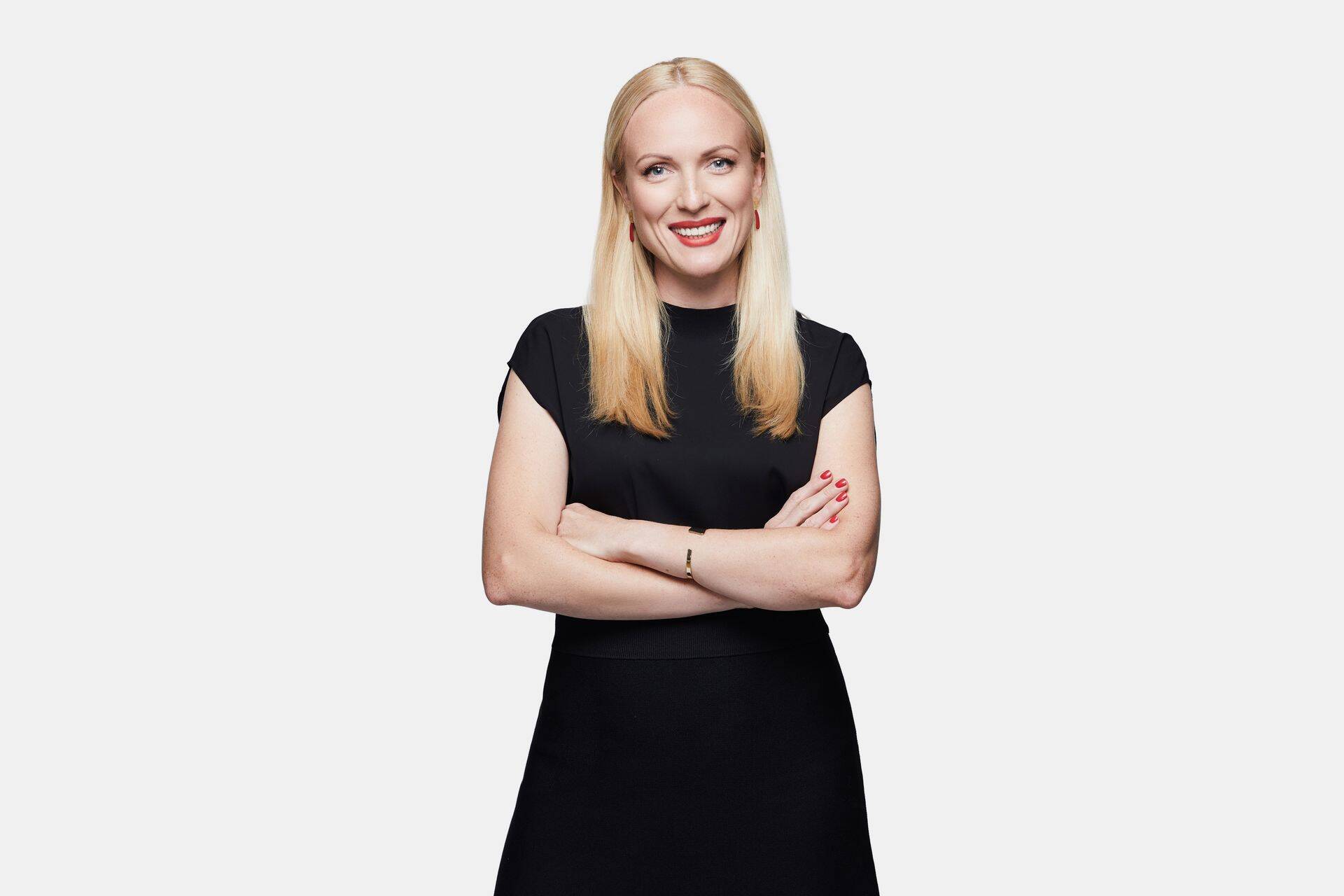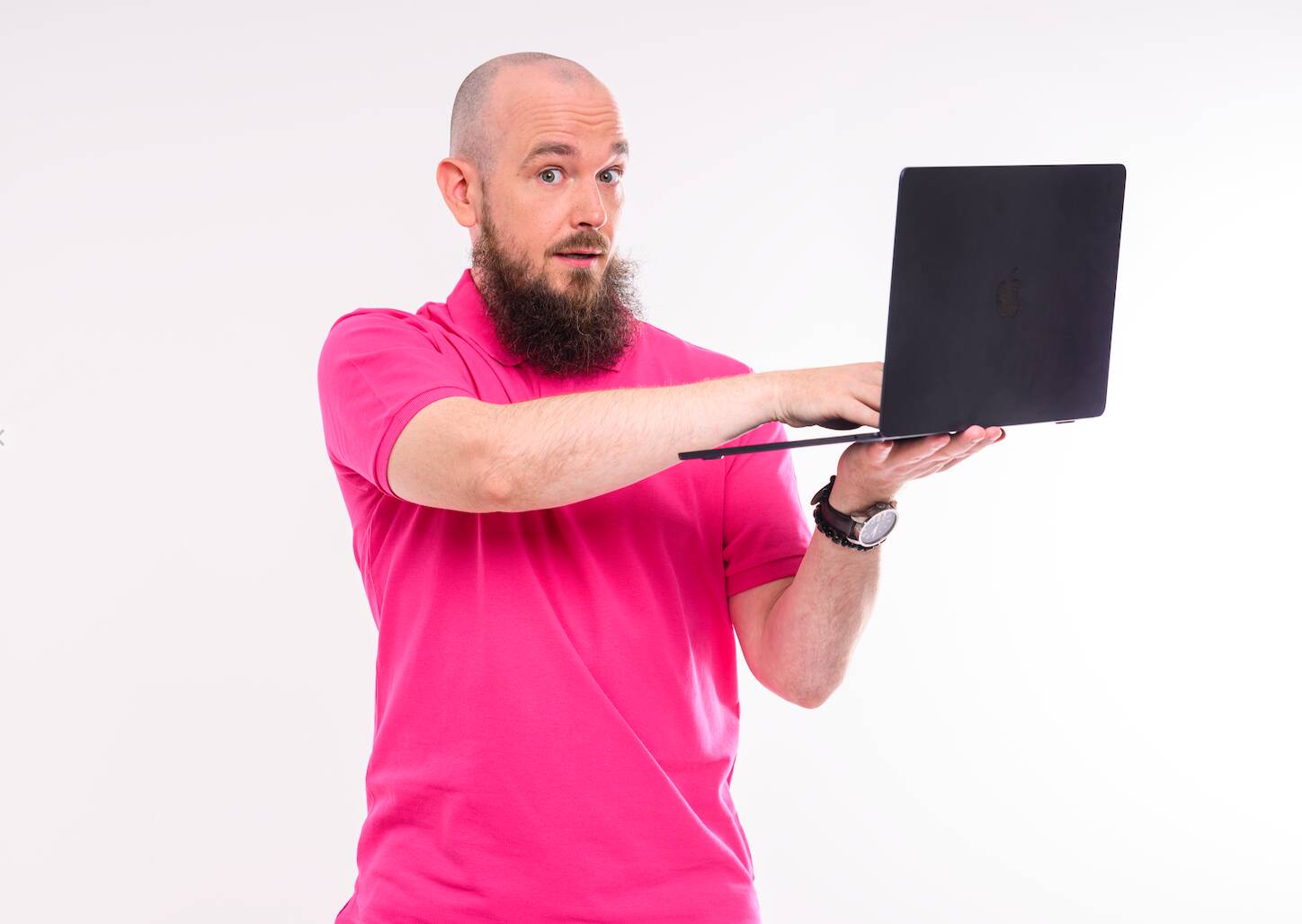Tähelepanu! Artikkel on enam kui 5 aastat vana ning kuulub väljaande digitaalsesse arhiivi. Väljaanne ei uuenda ega kaasajasta arhiveeritud sisu, mistõttu võib olla vajalik kaasaegsete allikatega tutvumine
Lumebot: Three Days of Business This Year
In a former sauna located in the science and business campus Tehnopol, Estonian startup Lumebot has completed the third generation of street cleaning robot. Despite the mild winter, founders promise to release at least one more new model this year.
In September last year, Superangel investment fund led by Veljo Otsason, Rain Rannu and Marko Kiisa invested in the Lumebot team, which develops autonomous snow removing and street cleaning robots, because they had the right attitude and ambition.
“While the product was still very fragile at the time, the team was able to rewrite all the software over the weekend at Base Camp hackathon and proved highly motivated to work together. Today, the robot has evolved by three versions and the progress is visible. The sector in general is also very attractive because it solves a clear existing problem,” said Veljo Otsason, co-founder and investor of Superangel. According to him, every routine or simple job that is automated, frees up new resources in society as a whole and allows people to focus on the more creative things.
Modular robots are the future
Andres Kõiva, co-founder of Lumebot, says that the robot is still remotely controlled today and autonomy will be achieved once they are certain of all the aspects of how the robot behaves on the street. The team has actively worked on robot assembly, electronics and testing of the 500 kg machine. For the customer, the robot will provide readiness to clear snow when necessary. It is achieved through various sensors and weather report, connected to the charging station. "It's important for the machine to be able to measure the amount of snow outside to go out at the right time," said Kõiva, adding that the right moment can be calculated through the density of snowfall. One machine can keep a territory of up to 5000 square meters clean.
This year, Lumebot has had three business days. The startup has big plans, but the question arises what happens if the mild winters continue. Kõiva has come up with a solution that is already under development. In order for the machine to provide functionality all year round, bristles will be added to the existing plow solution which enables street cleaning as a service during snow-free periods and in warmer seasons. In the words of Kõiva, it is imperative that all robots become modular so they can do different things. “We are foreseeing a future where the streets are full of robots. It will become nonsense, if it’s allowed. That's why we need modular machines that can do different jobs,” he adds.
According to Kõiva, machine autonomy will most likely be achieved even this year. Lumebot has plans for a big pilot project in Estonia and the team is currently negotiating with Finnish municipalities to carry out a pilot project there as well the next season.
Hetkel kuum
The best decision
Kõiva is sure that starting Lumebot is the best decision of his life. Otsason also thinks it’s good to do a startup in Estonia today, because the financing opportunities are great. At the same time, he says good advice and a network of contacts are even more important for startups than money. "Five minutes with the right person at the right time can save you months of development time and a lot of money," he adds.
The founders of Superangel realized that the most common 3-month accelerator programs out there are too short, so they created a 12-month business accelerator, Alpine House, which all their early-stage portfolio companies go through.
“Enthusiasm is quickly triggered in three months, but the programs often fail to produce meaningful results. This is especially true in the field of hardware and robotics,” said Otsason. In addition to business model development, which is usually the focus of 3-month accelerator programs, Kõiva points out that Alpine House accelerator goes further and provides support in sales, fundraising and technical expertise. According to Otsason, Lumebot is already getting close to the next stage in business development, which is most probably the next round of fundraising.
Different number of shares each day
According to Otsason, a robotics company needs a broad spectrum of expertise in various fields. Lumebot too has 9 founders in total. According to Kõiva, Lumebot has many different facets and all shareholders are essentially important for the company. Otsason asserts that for hardware startups it is not enough to have the usual startup characters on the team, such as the hacker who builds, the hipster who designs and the hustler who sells the product. The company also needs engineering and electronics, machine vision, but also production and maintenance expertise to put everything together.
In order to manage a wide range of stakeholders Lumebot has started using an unusual shareholder model - the slicing pie - and made it work, said Kõiva. "It takes into account the contribution of all of us, in terms of finances and working hours, and according to the model we might all have different shares in the company every day," said Kõiva. Valter Võhma, the partner and attorney at law of Hedman Partners, commented that the slicing pie shareholder model is still very uncommon among Estonian startups, although it allows for very accurate input evaluation.
According to Võhma, the slicing pie model makes sense only in case of a large number of founders (more than 5) and when the contribution and value of each founder to the company is not easily foreseen. According to him, this allows for very accurate - essentially up to a minute/euro - estimation of each founder's contribution. "In this model, the founders agree that the size of each founder's share in the company depends on how much he or she contributes to the startup over a given period of time. The calculation is usually done through virtual accounting," he explained and added that contributions can be monetary and non-monetary, e.g. working hours and contacts or assets transferred to the startup, and in general, the greater the founder's contribution, the larger the founder's share.
The slicing pie shareholder model takes into account the monetary and non-monetary contribution of all founders and they all might have different shares in the company every day.
Lumebot is an Estonian startup founded in 2019 that develops autonomous snow clearing and street cleaning robots.
Superangel is an Estonian investment fund founded in 2018 by Veljo Otsason, Rain Rannu and Marek Kiisa. The Fund invests € 16 million over a period of four years. Early-stage companies are selected at Base Camp hackathons, and they go through a 12-month business acceleration program called Alpine House. Besides investing into early-stage startups Superangel invests also in seed-stage startups.
Hedman Partners is a law firm that offers know-how to startups in various areas of business law. The firm is the legal partner of the foundME.io portal.
FoundME is inviting you on board of a weekly newsletter that will bring you the news and opinion stories from the Estonian startup scene. - Subscribe to FoundME newsletter HERE!
Seotud lood
Cybernetica vanemteadur Liina Kamm ja SoftComply tegevjuht Marion Lepmets avavad, millest põnevast räägitakse parasjagu kõige rohkem küberturbe ja tehisintellekti valdkonnas. Idufirmadel on suurte tegijate kõrval mitu trumpi. Neid kõrva taha pannes tasub kindlasti osa võtta juulis toimuvast Küberkiirendist.
Enimloetud
5
Viimased uudised
Hetkel kuum
Liitu uudiskirjaga
Telli uudiskiri ning saad oma postkasti päeva olulisemad uudised.
Tagasi FoundMe esilehele
